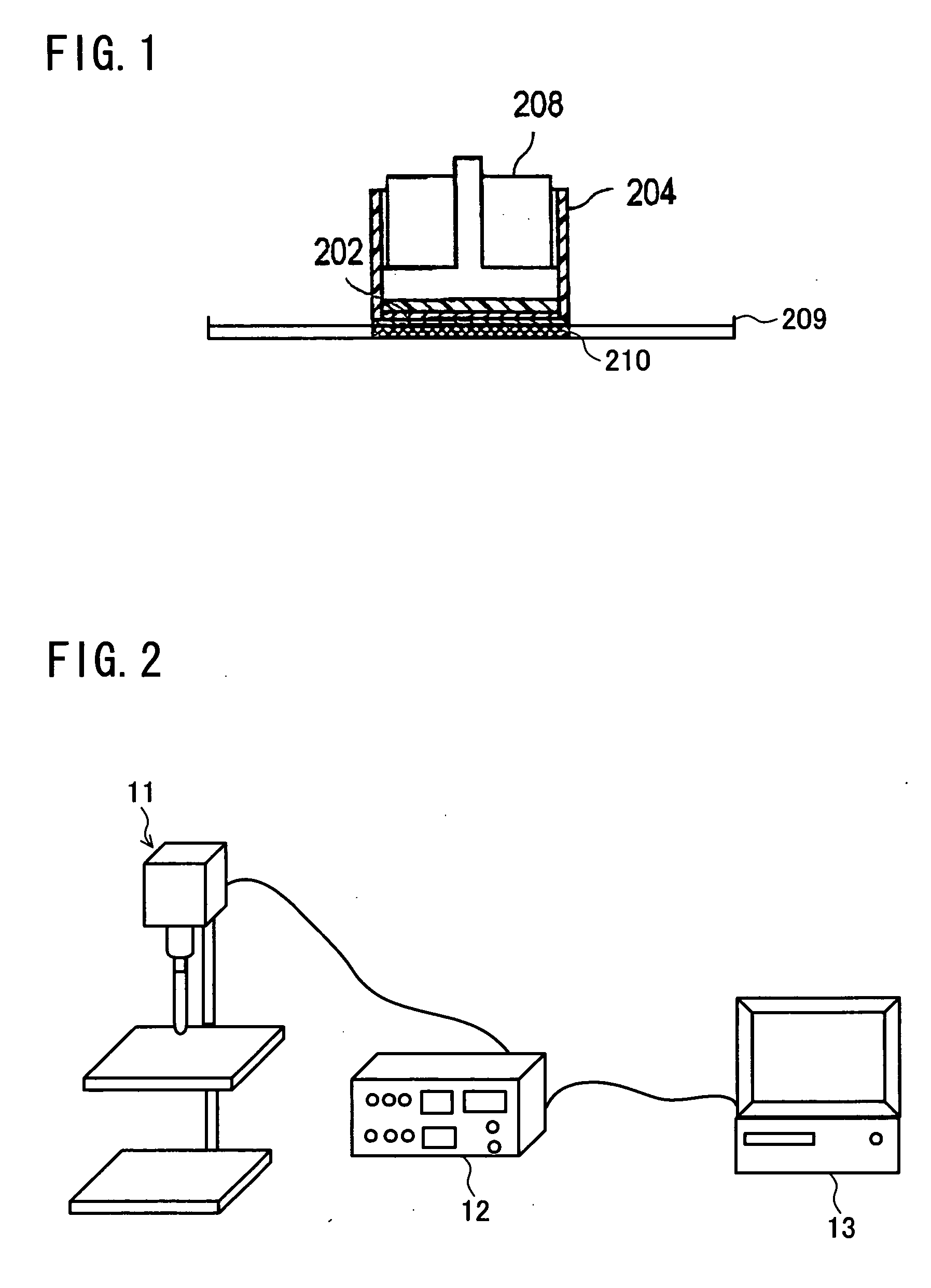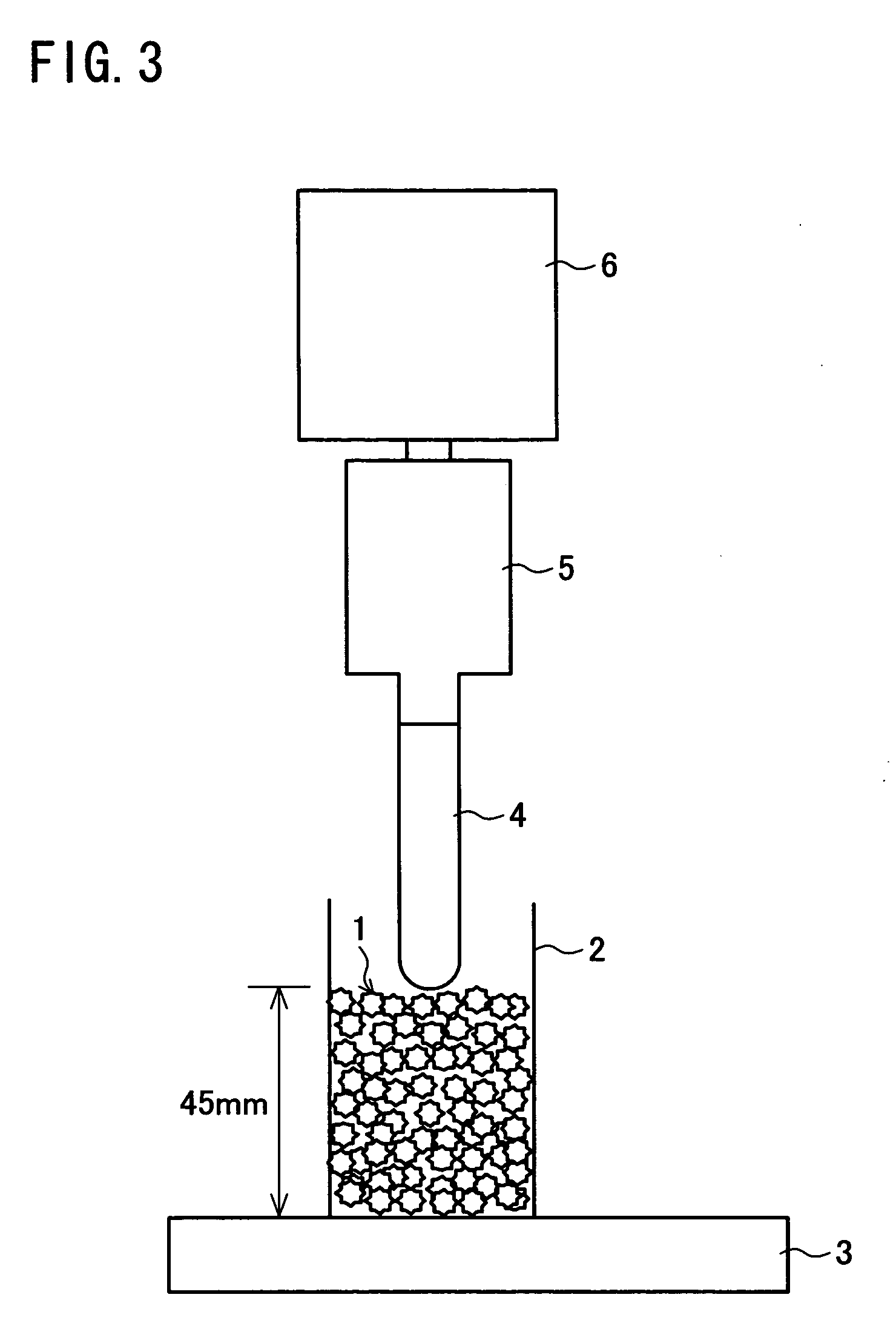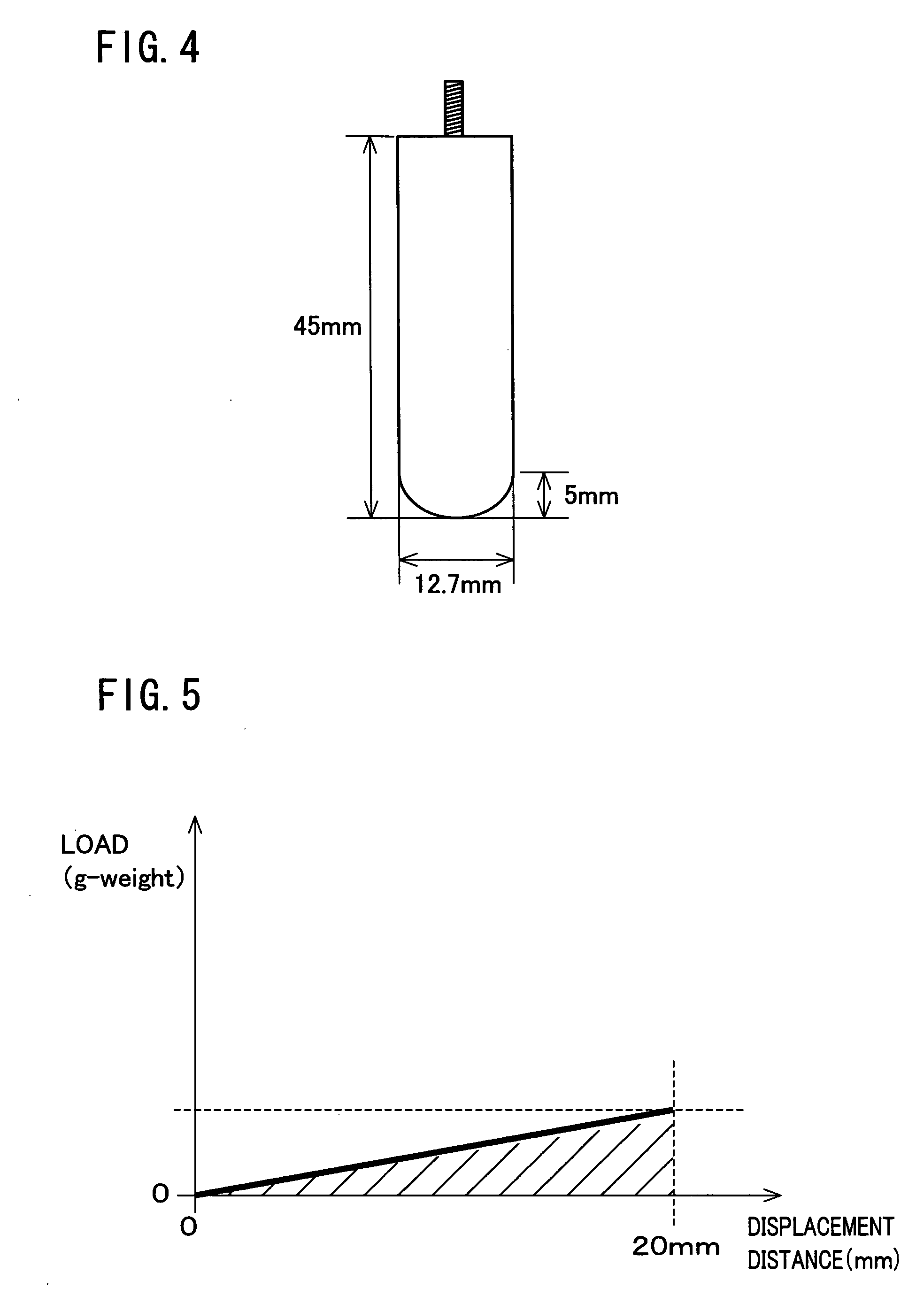Particulate water absorbent agent and production method thereof, and water absorbent article
a technology of water absorption agent and powder, which is applied in the direction of bandages, chemistry apparatus and processes, and other chemical processes, can solve the problems of significant drop in absorbency against pressure, insufficient fluidity at the time of moisture absorption, and insufficient fluidity in the dry state. , to achieve the effect of superior fluidity and high water absorption performan
- Summary
- Abstract
- Description
- Claims
- Application Information
AI Technical Summary
Benefits of technology
Problems solved by technology
Method used
Image
Examples
embodiment 1
1. Composition of the Macromolecule Additive
[0096] The macromolecule additive which can be used in the present invention is a macromolecule compound obtained by (co)polymerizing a monomer whose lateral chain has a hydrocarbon group containing seven or more carbons in its molecule, or is a macromolecule compound obtained by introducing a hydrocarbon group, containing seven or more carbons in its molecule, into a lateral chain of a macromolecule compound having a reactive group.
[0097] The hydrocarbon group has a hydrocarbon unit, constituted of carbon and hydrogen, which has seven or more carbons in its molecule. It does not matter whether its structure is a straight chain, or a branched chain, or a cyclic chain. It does not matter whether the structure is in a saturated state or in an unsaturated state. Particularly, when an unsaturated hydrocarbon unit such as an undecylenyl group or the like is used, it is possible to give further effects such as addition of an antibacterial pro...
embodiment 2
[0152] In the present invention, a surfactant was used as an essential component of the surface treatment agent in performing the surface cross-linking treatment, so as to produce the particulate water absorbing agent. In the present invention, the surfactant is an agent having a hydrophilic property and an oleophilic property (hydrophobic property) in its molecule, and is strongly adsorbed to a surface of a substance due to a balance of the hydrophilic property and the oleophilic property, and reforms a surface property of the substance. Examples of the surfactant which can be used include an anionic surfactant, a nonionic surfactant, a cationic surfactant, and an amphoteric surfactant.
[0153] With respect to 100 weight parts of the water absorbent resin used, an amount of the surfactant ranges from 0.0005 to 0.012 weight parts, preferably from 0.00005 to 0.001 weight parts, more preferably from 0.001 to 0.0045 weight parts, particularly preferably from 0.0015 to 0.004 weight parts...
embodiment 3
[0164] The lubricant is a substance, intervening between two faces sliding each other, which reduces a friction (resistance) therebetween. That is, when substances are in contact with each other, surface conditions of the substances cause the faces to more likely to or less likely to slide each other, or the resistance therebetween to be higher or smaller, and the lubricant reduces the resistance.
[0165] The lubricant used in the present invention reduces a friction (resistance) between water absorbent resins. By using the lubricant, it is possible to obtain the particulate water absorbing agent whose loose bulk density and flow rate have been increased. By increasing the flow rate, it is possible to reduce (i) a time taken to move the particulate water absorbing agent from the container to the hopper and (ii) a time taken to fill the container with the particulate water absorbing agent having been moved from the hopper, thereby improving an efficiency in the operation. These effect...
PUM
| Property | Measurement | Unit |
|---|---|---|
| Temperature | aaaaa | aaaaa |
| Length | aaaaa | aaaaa |
| Length | aaaaa | aaaaa |
Abstract
Description
Claims
Application Information
 Login to View More
Login to View More - R&D
- Intellectual Property
- Life Sciences
- Materials
- Tech Scout
- Unparalleled Data Quality
- Higher Quality Content
- 60% Fewer Hallucinations
Browse by: Latest US Patents, China's latest patents, Technical Efficacy Thesaurus, Application Domain, Technology Topic, Popular Technical Reports.
© 2025 PatSnap. All rights reserved.Legal|Privacy policy|Modern Slavery Act Transparency Statement|Sitemap|About US| Contact US: help@patsnap.com



